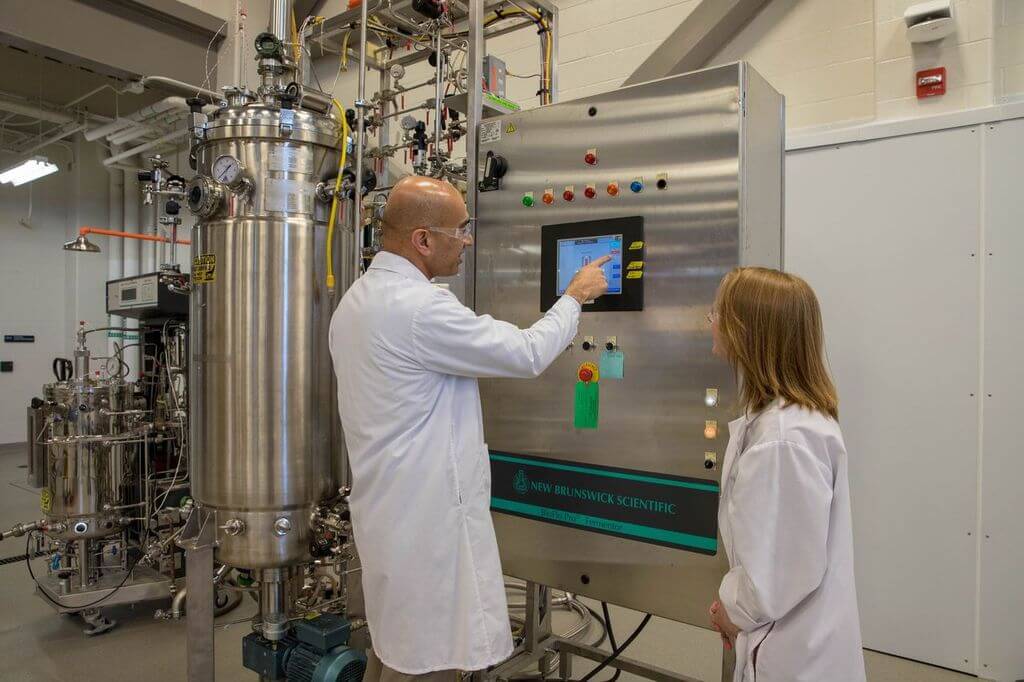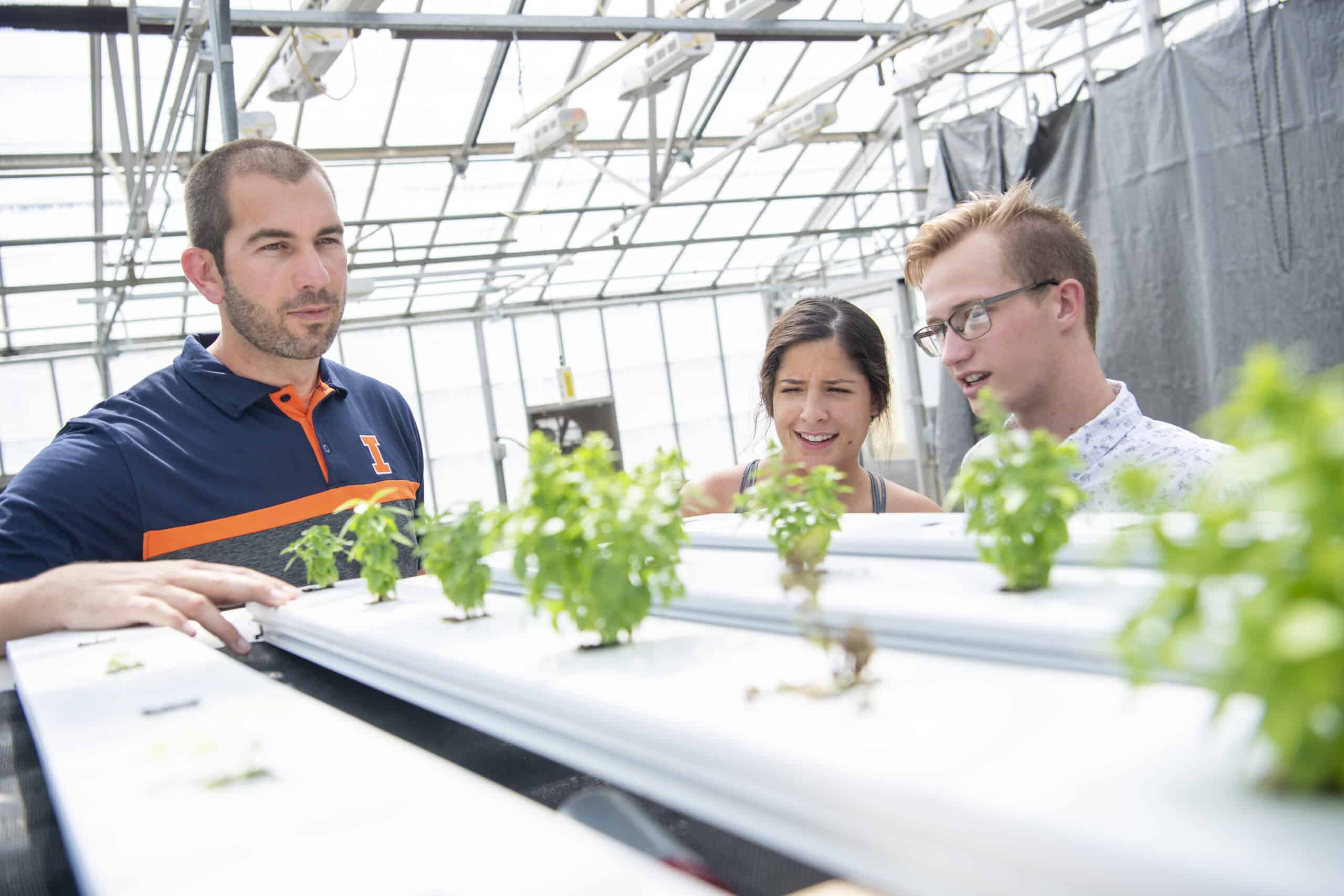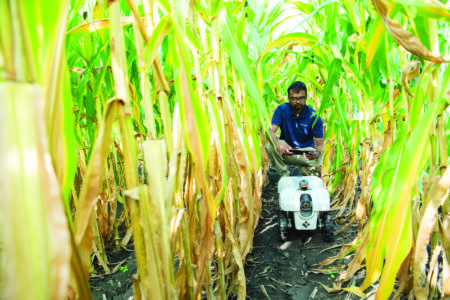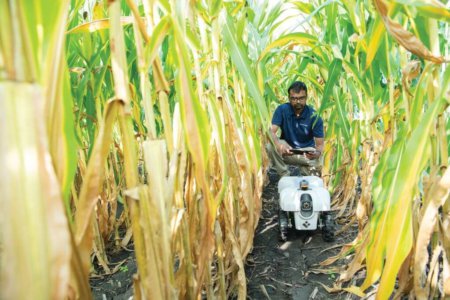Audrey Frost developed a passion for environmental issues at a young age. “It really started in middle school,” she recalls. “I became fascinated by the impact water quality has on ecosystems and human health.” Hence, when she came across the University of Illinois Urbana-Champaign’s (U. of I.) Bachelor of Science in Agricultural and Biological Engineering (ABE), she knew it was the path for her.
Today, Audrey’s journey at U. of I. exemplifies the unique opportunities offered by the ABE program – a launchpad for innovation and environmental stewardship that stands at the forefront of engineering education.
A Versatile Program with Specialised Focus Areas
At the heart of the programme lies its versatility. Students can choose from six specialised focus areas, each designed to align with emerging industry demands. While Frost opted to pursue the Soil & Water Resources Engineering concentration, other focus areas cover Bioprocess Engineering & Industrial Biotechnology, Off-Highway Vehicle & Equipment Engineering, Renewable Energy Systems Engineering, Sustainable Ecological & Environmental Systems Engineering, and Synthetic Biological Engineering.
All routes emphasise the importance of interdisciplinary problem-solving. For example, Frost’s custom curriculum currently features a range of soil and water engineering courses that are broadening her knowledge of key principles like hydrology, soil chemistry, and water quality management. Complementing this foundation are lessons in human-centred design, bioenvironmental engineering, and off-road equipment engineering.
“This ability to design my coursework around my interests has been essential in shaping my educational path and career aspirations,” says Frost. “I believe that understanding the interactions between environmental systems gained through coursework across various concentrations, is vital for engineers tackling the most important issues facing the environment, as changes in one system can significantly affect another.”

Source: University of Illinois Urbana Champaign
From Classroom to Real-World Impact
The ABET-accredited ABE programme ensures graduates are ready to meet the rigorous standards of the engineering profession. Such recognition is typical of a qualification that consistently sees students applying theoretical knowledge to practical problems.
One of Frost’s standout projects involved researching the effects of woodchip bioreactor-biochar system configurations on nutrient control and bioreactor emissions in agricultural drainage systems. “It taught me the importance of innovative thinking when faced with complex problems, and it emphasised that every solution involves trade-offs,” she says.
Her involvement in research has certainly expanded over the years, with current projects investigating hydrothermal liquefaction aqueous phase as a potential nutrient source for hydroponic systems, and using electronic noses to detect food adulteration. These experiences have solidified her love for research and steered her future ambitions towards pursuing a PhD in water resource management.
Pathway to Advanced Study and Global Perspectives
Graduates like Liam Reynolds, who is now pursuing his PhD in ABE, are living proof that the ABE programme lays the perfect groundwork for advanced study. His personalised path focused on sustainability, controlled environment agriculture, and environmental engineering.
Beyond the classroom, his extensive involvement in experiential learning opportunities helped broaden his horizons. His study abroad trips to Ecuador and Puerto Rico, for instance, opened his eyes to global agricultural and environmental challenges. His summer working in Colorado with the Rocky Mountain Youth Corps finetuned his skills in conducting agricultural economic research.
“These trips were incredibly eye-opening and I think made me much more aware of global issues and non-American viewpoints, enabling me to better understand international engineering challenges,” says Reynolds.
However, it was his undergraduate research at the U. of I., particularly his project on seed germination screening with various wastewaters, that solidified his decision to pursue a PhD in ABE. The study even laid the groundwork for his doctoral thesis and led to a published paper and presentations at professional conferences by the American Society of Agricultural and Biological Engineers.
The Hydrothermal Liquefaction Lab pilot reactor was a key facility in Reynolds’ research, fueling his passion for finding renewable nutrient sources for hydroponic crops — a vital project in addressing food, energy, and water challenges. This isn’t the only state-of-the-art space ABE students can utilise during their studies.

Source: University of Illinois at Urbana-Champaign
State-of-the-Art Research Facilities
U. of I. is home to several advanced research spaces that ABE students can utilise, including the ABE Farm Research and Training Centre, Integrated Bioprocessing Research Laboratory, Sustainable Bioprocessing and Industrial Biotech Lab, Illinois Optical Sensing and Nanozyme Engineering Lab, and Synthetic Biological Engineering Lab.
Such resources are crucial for ABE seniors in the Capstone Design Experience course. This module sees them working with industry and nonprofit partners to develop innovative solutions addressing specific agricultural and biological needs and eventually showcasing their work at the annual Capstone Showcase.
Over the years, student teams have collaborated with partners like John Deere, Agri Drain Corporation, and Universidad Privada Boliviana to create impactful designs. Standout projects included a piglet-warming trailer, a mobile weight distribution mechanism for agricultural vehicles, and a deep-tunnel rain catchment system.
A Proven Track Record of Success
The ABE programme’s focus on nurturing students’ technical expertise explains its proven track record. Graduates enjoy a 100% job placement rate, with an average starting salary of US$73,200, as of 2020-2021. Over the span of their careers, they earn 20% more than their peers with comparable qualifications, thanks to the strong industry connections fostered throughout their education.
By combining customizable education, hands-on experience, and strong industry connections, the Agricultural and Biological Engineering programme at the University of Illinois Urbana-Champaign prepares students like Frost and Reynolds to become innovative problem-solvers ready to tackle the complex challenges of the 21st century.
Learn more about the programme that got them there.
Follow the University of Illinois Urbana-Champaign on Facebook, X, LinkedIn, YouTube, and Instagram













